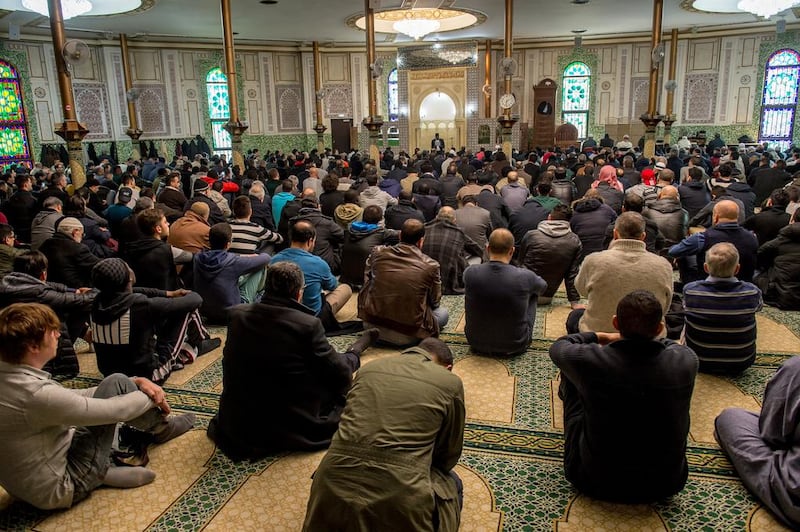The debate about Islamic extremism is sometimes easier to have in the Middle East than in the West.
Even describing terrorists as Islamist radicals could make people in the West uneasy, understandably because such labels could incriminate Muslim communities or for fear of sounding Islamophobic.
I noticed the difference after I moved out of the UAE in 2015.
In London, for example, I took part in a brief debate on the BBC on whether ISIL should be called the Islamic State. My position was that attempts to distance the group from such terms as the caliphate and Islamic state reinforced the discourse that brought us groups such as ISIL in the first place.
A common argument is that calling ISIL a caliphate would confer legitimacy to it. The argument implies that “caliphate” and “Islamic state” are ideals not to be associated with an illegitimate group. “Who is Abu Bakr Al Baghdadi to be called a caliph?” people ask. But the group has been undermined more effectively by discussions that deal with its claims for legitimacy rather than by trying to ridicule it out the door.
Even if the group is defeated, its toxic discourse will remain intact, if not strengthened by mainstream media.
In futile attempts to discredit the group through name-calling, an opportunity to discredit the idea has been missed.
Two examples of beating around the bush merit particular attention. The first is related to attempts to eradicate extremism by focusing on such groups separately from the context from which they emerge.
The foundational contribution of ideologues to groups like ISIL and Al Qaeda continues to be overlooked.
Scholars’ debates are based on conversations with these people rather than a close examination of how militants describe their inspirations and aspirations.
In the meantime, such extremists preach from places like London, often engaging in idiomatic gymnastics and ambiguity to avoid legal accountability.
In the West, dealing with this aspect is complicated by rampant apologism that often paints actual Islamists as counterweights to terrorists simply because they reject the terrorist methods. But rejection of a group’s methods should no longer be taken as a sure sign of moderation. Indeed, the old approach that failed to defeat Al Qaeda will fail to defeat ISIL.
The second layer that requires attention is a more subtle yet crucial one. A common response from apologists in the West after almost every terrorist act is that Muslims have condemned the attack. Statements of condemnation are noble acts of solidarity, but they are not enough.
Muslim clerics, in particular, must make it their mission to mobilise their communities against extremism.
They have a religious and moral responsibility to be as energetic in fighting extremists as they are in speaking out against anti-Muslim sentiment.
Clerical lethargy towards extremism has been in display during Ramadan.
Compare, for instance, the response to the terrorist attacks in Egypt and the UK over the past three weeks and the reaction to a soap opera and an ad on Saudi-owned MBC.
Clerics and extremists have been up in arms in attacking the soap opera, titled Raven Black, because it depicted women who joined ISIL as lustful, claiming it insulting to veiled women in general. The ad, a message of peace featuring ordinary Muslims standing up against a suicide bomber, was widely criticised because it depicted a victim of the Syrian regime’s bombing as a victim of extremism.
Those who denounced the soap opera and the ad clearly felt offended by the implicit criticism of religious practices. That condemnation was in stark contrast to the silence that followed the murder of Egyptian Coptic civilians by ISIL on the eve of Ramadan.
The responses, like Al Azhar’s issuance of a statement, did not match explicit Islamic prohibition of the targeting of Christians.
Failure to even emphasise religious prohibition means that such acts could be seen as normal with the passage of time and the continued weak clerical and popular reactions.
Overreactions to attempts to counter extremism are a key factor behind the reluctance of many clerics and ordinary Muslims to speak out against ISIL because they might be accused of being moderate, secular or pro-West.
Islamist discourse provides ideological logistics to terrorists and reluctance to speak about extremism creates the space for radicals to entrench their views.
With the passage of time and the lack of adequate responses to them, extremist practices could become normalised.
Hassan Hassan is a senior fellow at the Tahrir Institute for Middle East Policy and co-author of ISIS: Inside the Army of Terror
On Twitter: @hxhassan





